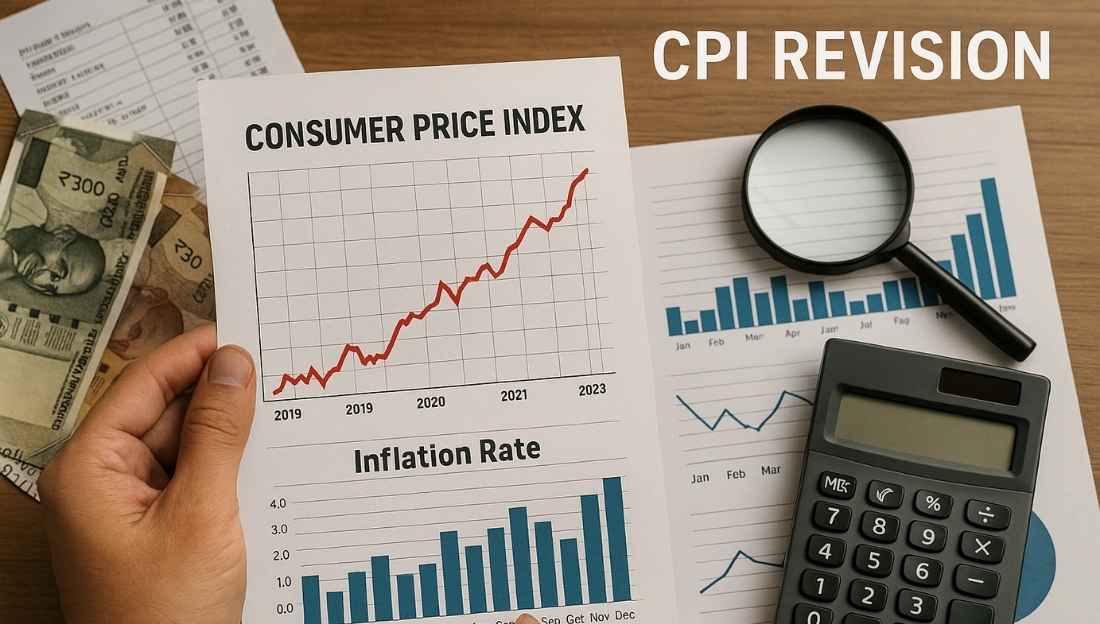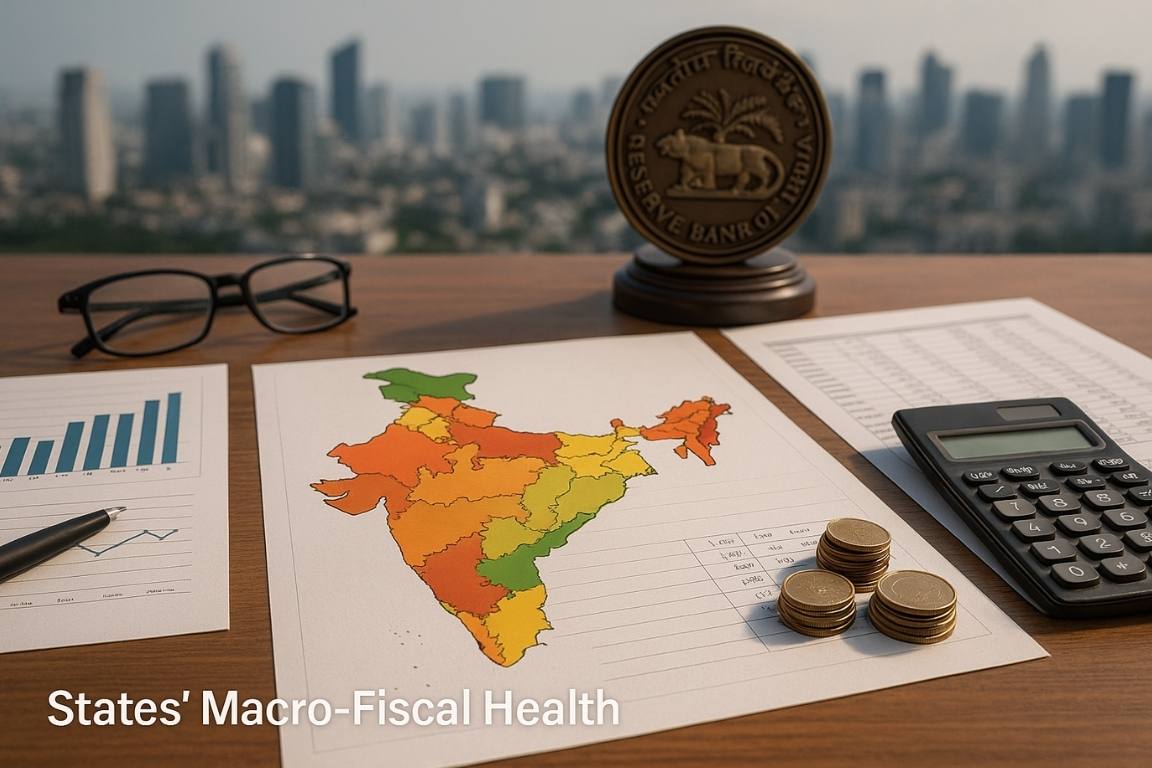The October 2025 inflation data has exposed critical flaws in India’s Consumer Price Index (CPI). A sudden fall in headline inflation despite high food prices, reveals structural and methodological problems in the index.
Key Highlights
- Retail inflation for October showed an abnormal fall to 0.25%, the lowest in more than a decade.
- This decline was caused by an unexpected 3.7% drop in the food and beverages index, even though actual food inflation was almost 9.7%.
- The gap between CPI’s statistical reading and real household experiences indicates a major failure in data capture and outdated weights.
- Since RBI relies on CPI to frame interest rate policy, inaccuracies threaten macroeconomic stability.

What Caused the October 2025 Inflation Anomaly?
- Sharp fall in food index, the biggest decline since the 2012 CPI series began.
- Real food prices climbed, showing complete mismatch between CPI numbers and market trends.
- Food holds 46% weight in CPI, so the flawed number drastically lowered overall inflation.
- Vegetable prices continued rising, contradicting the recorded fall.
- The drop reflects technical inconsistencies, not genuine deflation.
Why India’s CPI No Longer Reflects Reality
- Outdated base year (2012) fails to capture present-day consumption and digital economy patterns.
- Household spending has shifted, making current weights unrepresentative.
- GST-related price impacts are unevenly reflected across categories.
- Some components (fuel, housing, tobacco) show high inflation while the headline remains artificially low.
- Price collection often misses actual markets used by consumers, especially in urbanising areas.
Why a New CPI is Urgently Required
- Current weights ignore the effects of the GST regime.
- Rising spending on services, electronics, transportation, and digital utilities is poorly measured.
- Shifts in rural consumption patterns are not fully captured.
- GST rate reductions temporarily depress readings, masking real inflation trends.
- The government has acknowledged the need for a new CPI series, now under development.
What to Expect from the Revised CPI
- Better reflection of actual inflation faced by households.
- Revised weight structure with lower food share and higher services share.
- Improved decision-making for both fiscal and monetary policy.
- Adoption of global best practices, such as dynamic updating and digital price data.
- Likely rollout in the upcoming financial year.
DIFFERENCE BETWEEN CPI AND WPI
What They Measure
- CPI (Consumer Price Index): Measures the change in prices paid by consumers for goods and services (food, rent, transport, health, etc.).
- WPI (Wholesale Price Index): Measures price changes at the wholesale / bulk level, before goods reach consumers.
Who It Affects
- CPI: Shows cost of living and affects households directly.
- WPI: Shows producer-level inflation and affects businesses and supply chains.
Composition of Basket
- CPI: Includes services (education, health, transport) + goods.
- WPI: Includes only goods, no services.
Weight of Food
- CPI: High food weight (~46%), because households spend more on food.
- WPI: Low food weight (~24%); industry-related items dominate.
Use for Policy
- CPI: Used by RBI to set interest rates (monetary policy).
- WPI: Used to track supply-side pressures and price trends for producers.
Base Year
- CPI Base Year: 2012 (for CPI-Combined).
- WPI Base Year: 2011–12.
Published By
- CPI: Released by the National Statistical Office (NSO) under MoSPI.
- WPI: Released by the Office of the Economic Adviser, Ministry of Commerce & Industry.
Conclusion
India’s existing CPI has reached its functional limits. The October anomaly highlights deep structural flaws that can distort monetary policy, welfare programmes, and public perception. A revised, GST-aligned, and modern CPI is essential for sound economic governance.
This topic is available in detail on our main website.





